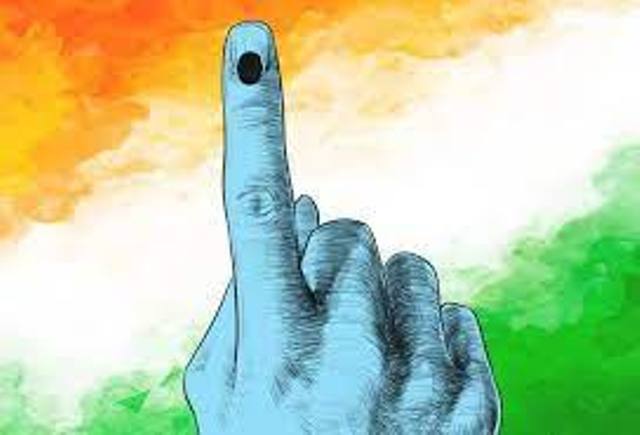Assembly Elections: 68% of voters cast ballots in Chhattisgarh and 71% in MP
New Delhi, Nov. 17: On Friday, 68.15 percent of the votes were cast in the second round of the elections for Chhattisgarh and 71.16 percent in all of Madhya Pradesh’s assembly seats. Voting is open till 5:00 p.m. There might be an improvement in the end outcomes. In a few isolated instances, voting was peaceful.
Women employees were assigned to all voting places in the Chhattisgarh Assembly constituency of Raipur North for the first time, and they performed their duties admirably. In the constituency, 201 polling places were manned by 1046 women. All voters, notably women and voters who identify as third gender, felt more at ease and secure using these entirely female-run polling places.
In the Chhattisgarh assembly seat of Bharatpur-Sonhat, which has less than 100 voters, 11 polling places were built up in order to make polling places accessible to voters. There was a voting place set up in Sheradand even though there were only 5 voters.
A total of 100% of the 42 registered voters (26 female and 16 male) turned out to vote at the Sonewani polling station in the Balaghat Assembly of Madhya Pradesh.
In Madhya Pradesh, 5,000 polling places were run by women, roughly 200 polling places were run by people with disabilities, and over 15,000 model polling places were constructed. In the second phase of the Chhattisgarh elections, around 700 voting stations were administered by women, about 70 polling stations were managed by people with disabilities, and about 350 model polling stations were built.
In addition, specially designed polling places with a theme were made for tribal voters in Madhya Pradesh and Chhattisgarh.
The Election Commission has worked hard to make voting easier for tribal groups. Enrollment rates of 100% were attained, particularly for the most vulnerable tribal communities residing in Madhya Pradesh and Chhattisgarh. These communities—Kamar, Bhunjiya, Baiga, Pahari Korwa, Abujhmadiya, Birhor in Chhattisgarh, and Sahariya, Bhariya, and Baiga in Madhya Pradesh—have almost 7.52 lakh votes among them. Because polling places modelled after tribal lifestyles provide a welcoming atmosphere for community members to visit and cast their votes, tribes from these communities were thrilled to take part in the celebration of democracy.
Madhya Pradesh’s 230 assembly seats were up for election from 7 a.m. to 6 p.m. Voting was conducted at 55 polling places in Mandla and 40 in Dindori in the Naxal-affected Balaghat district, as well as in the three assembly constituencies of Baihar, Lanji, and Parswada, from 7 a.m. to 3 p.m.
For the 230 assembly constituencies in the state, there are 2533 people running. There are 252 women, 2280 males, and 1 candidate of the third gender among them. In 70 assemblies across Chhattisgarh, voting took place between 8 a.m. and 5 p.m. Currently, 958 candidates are competing.

